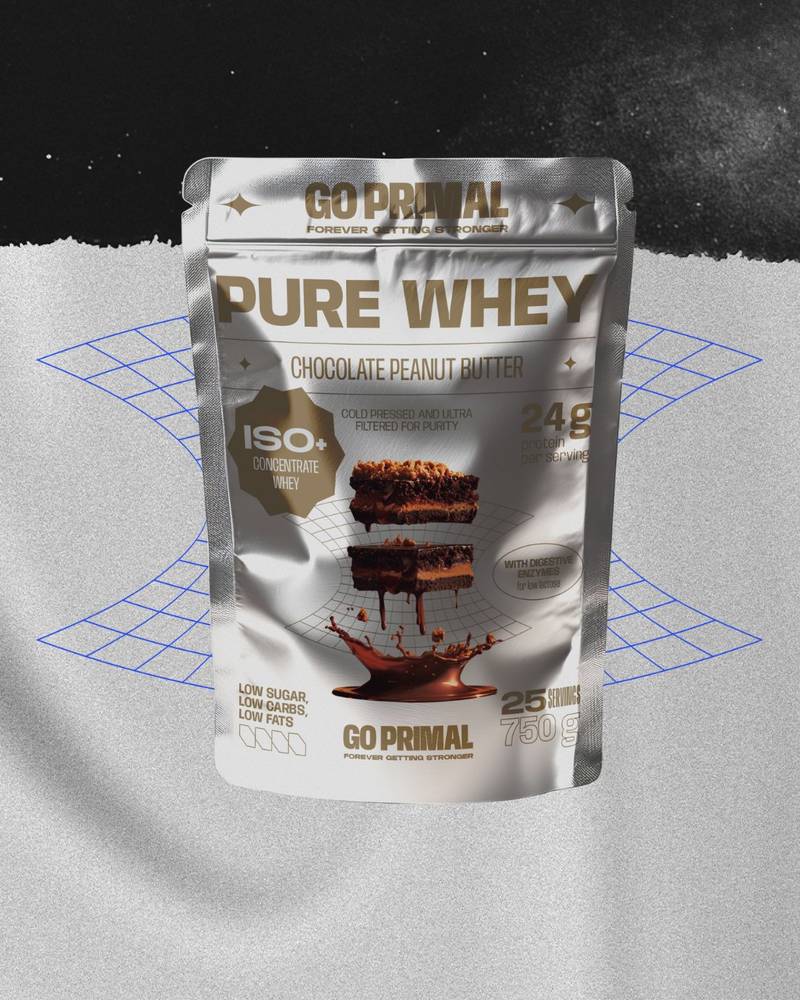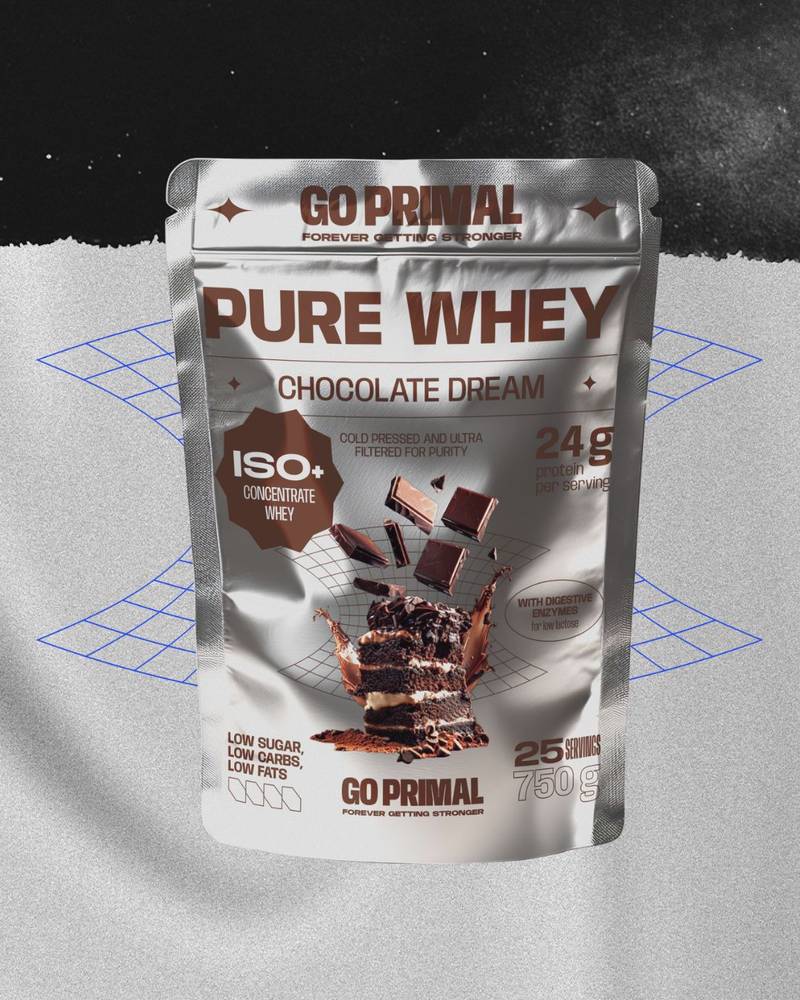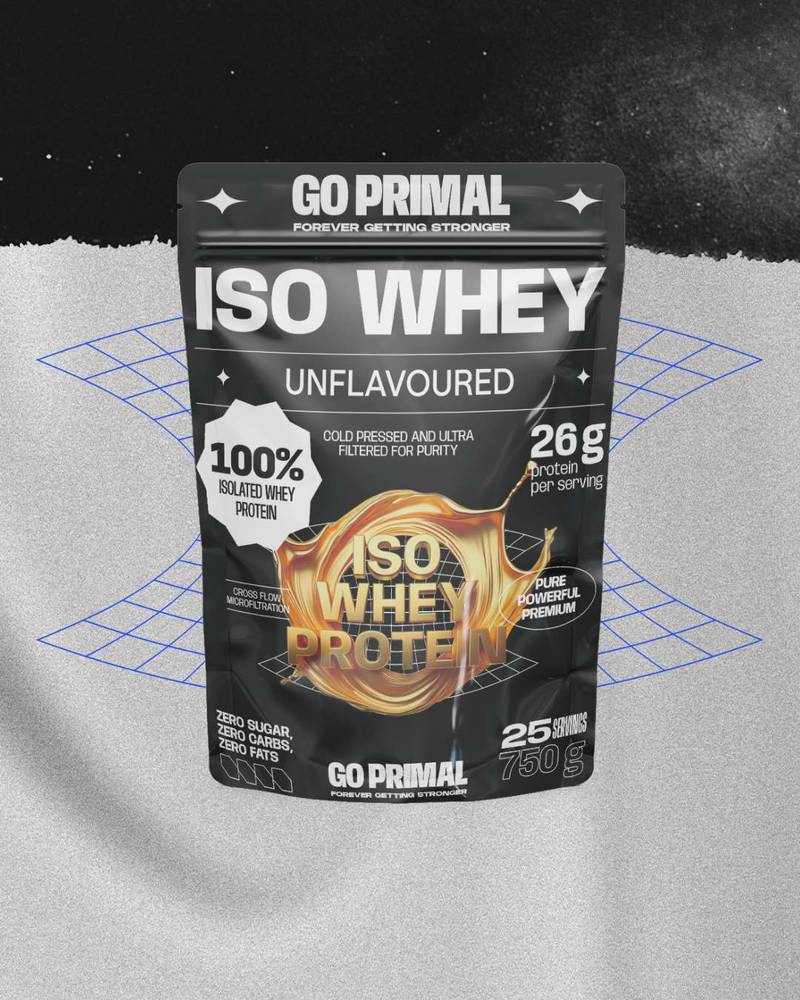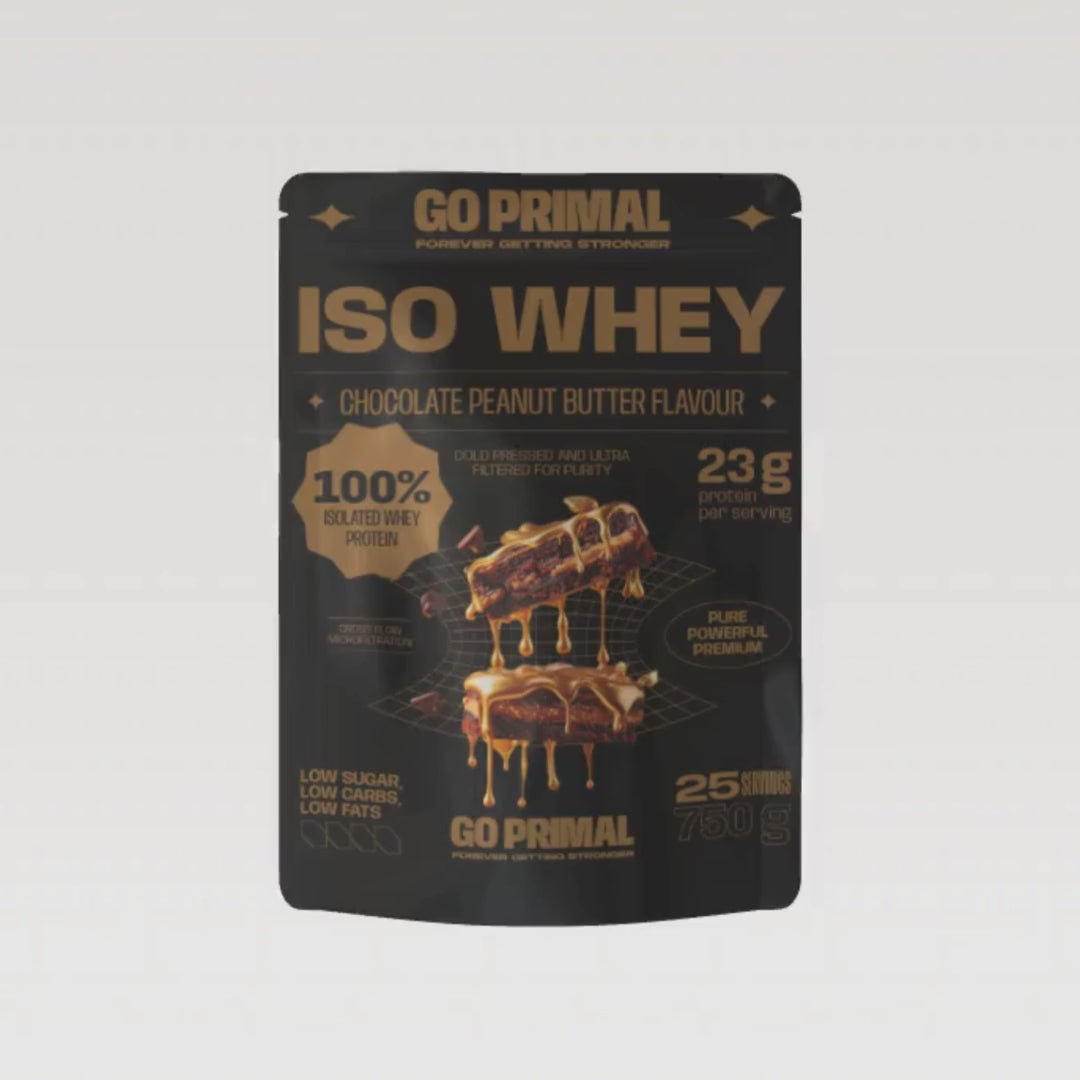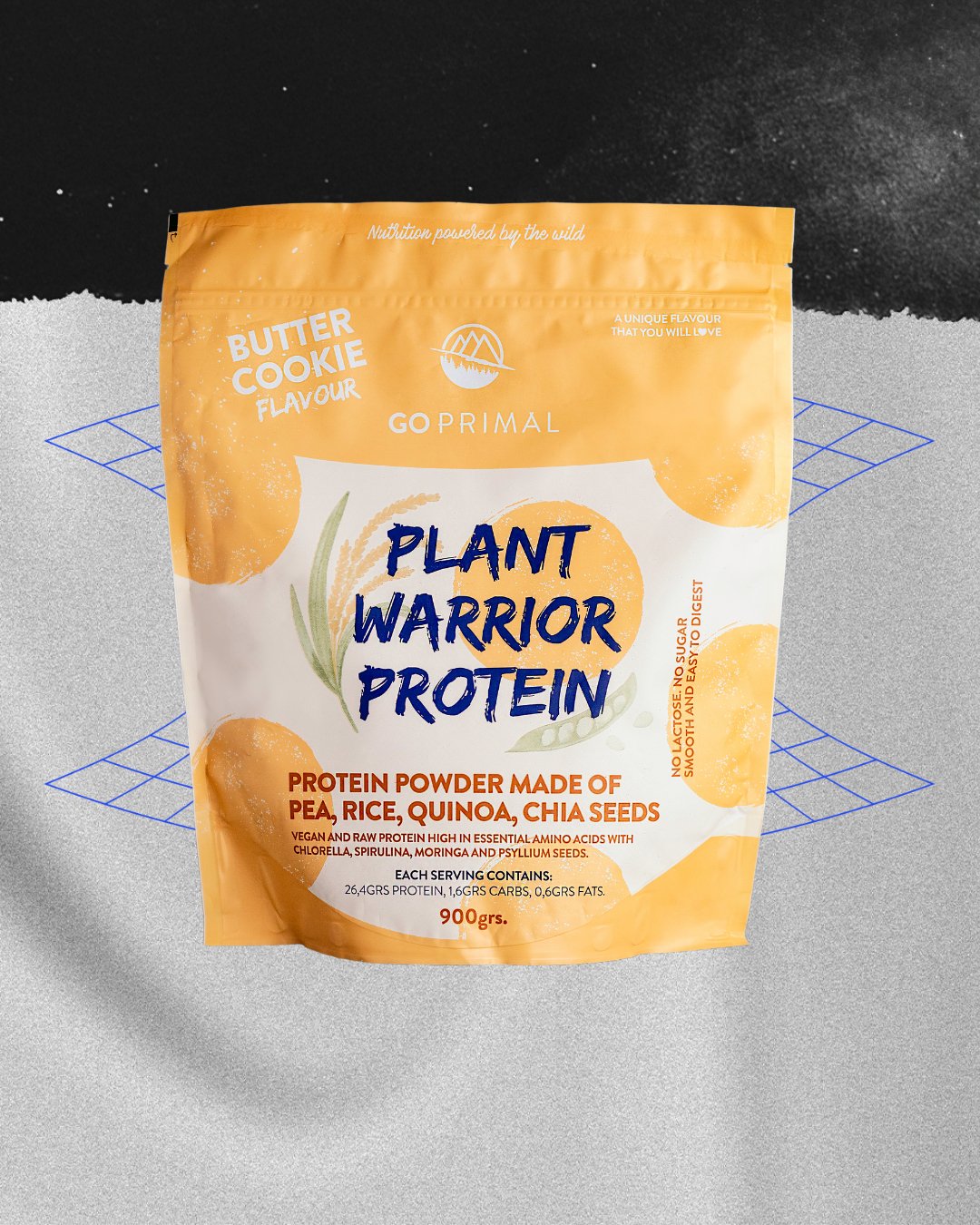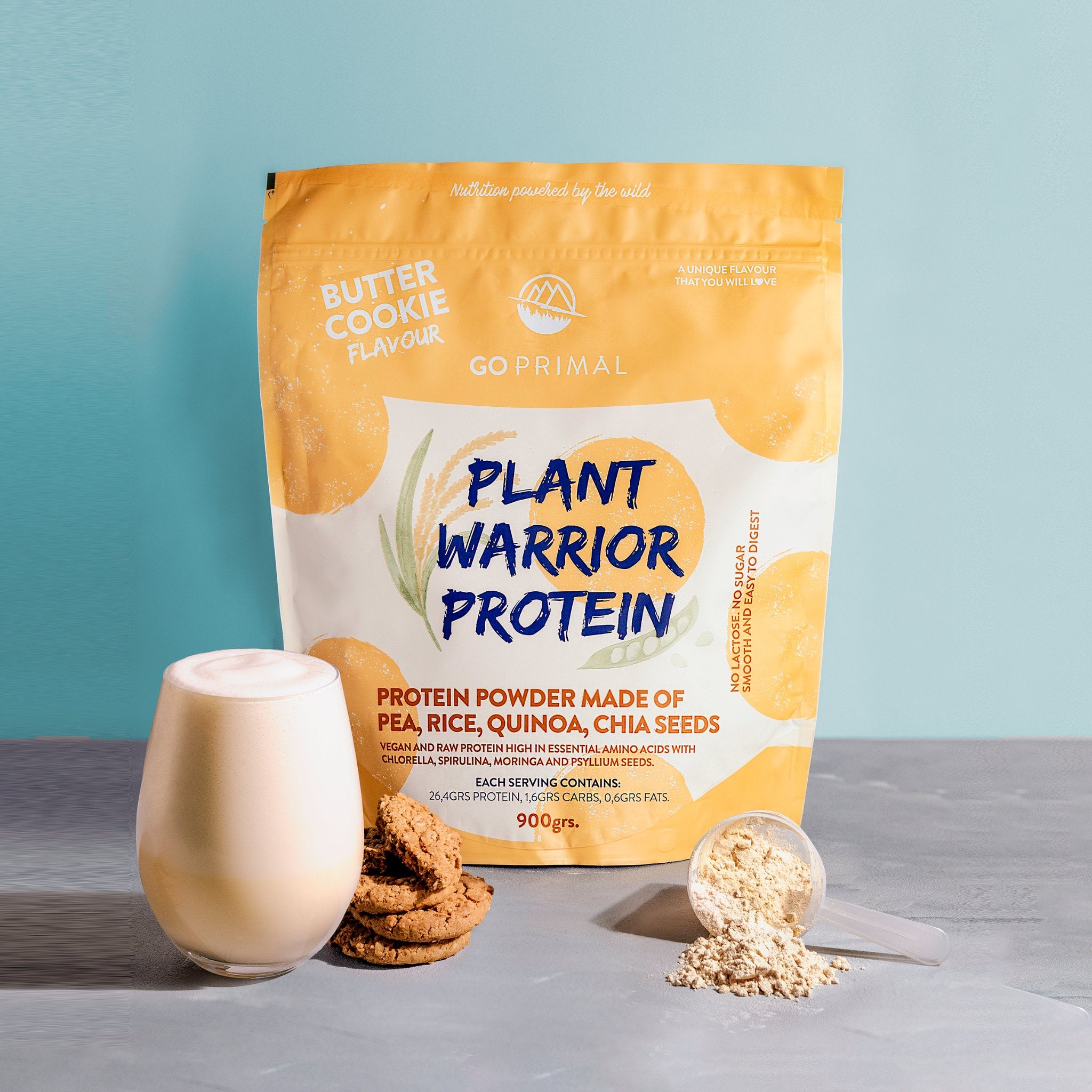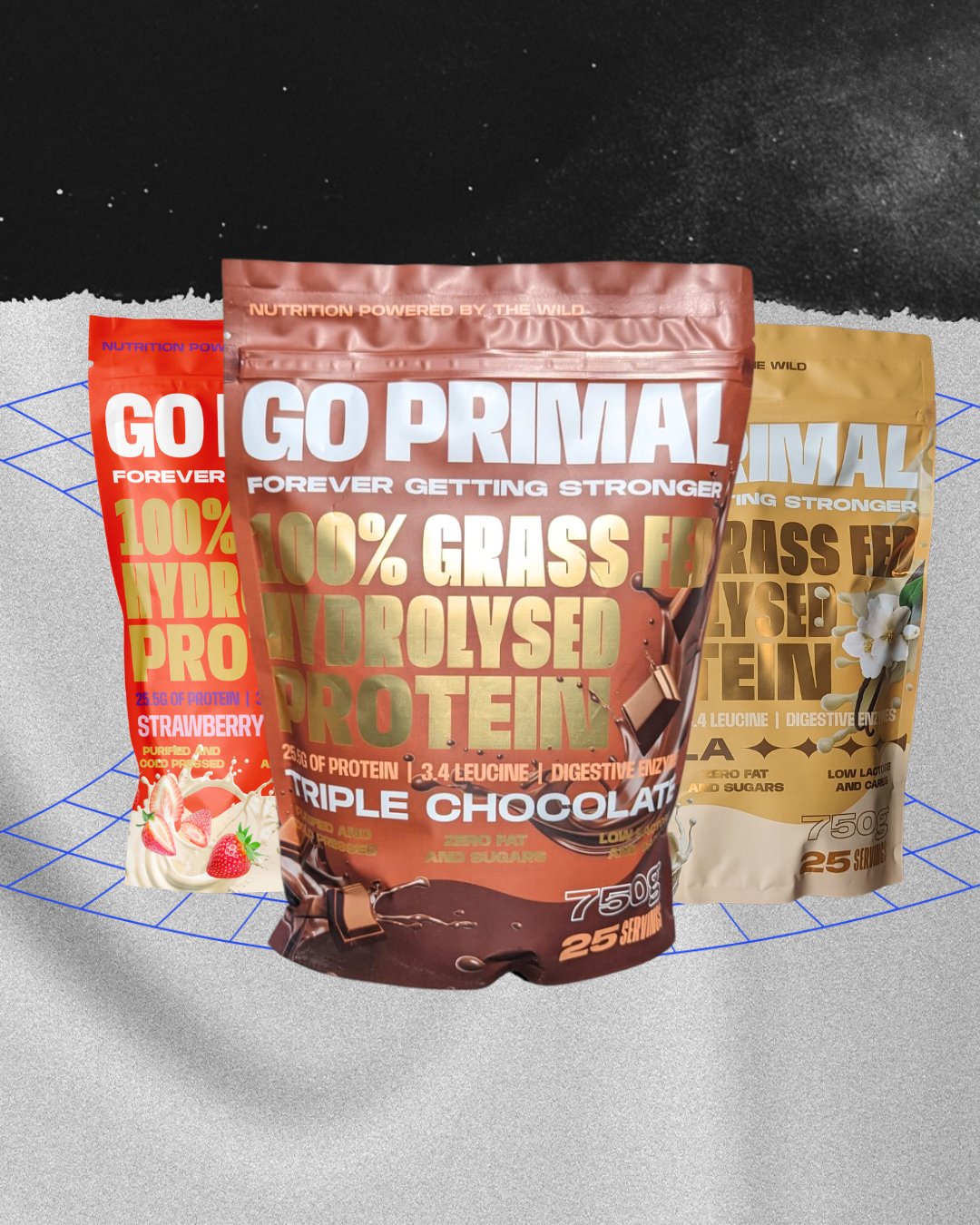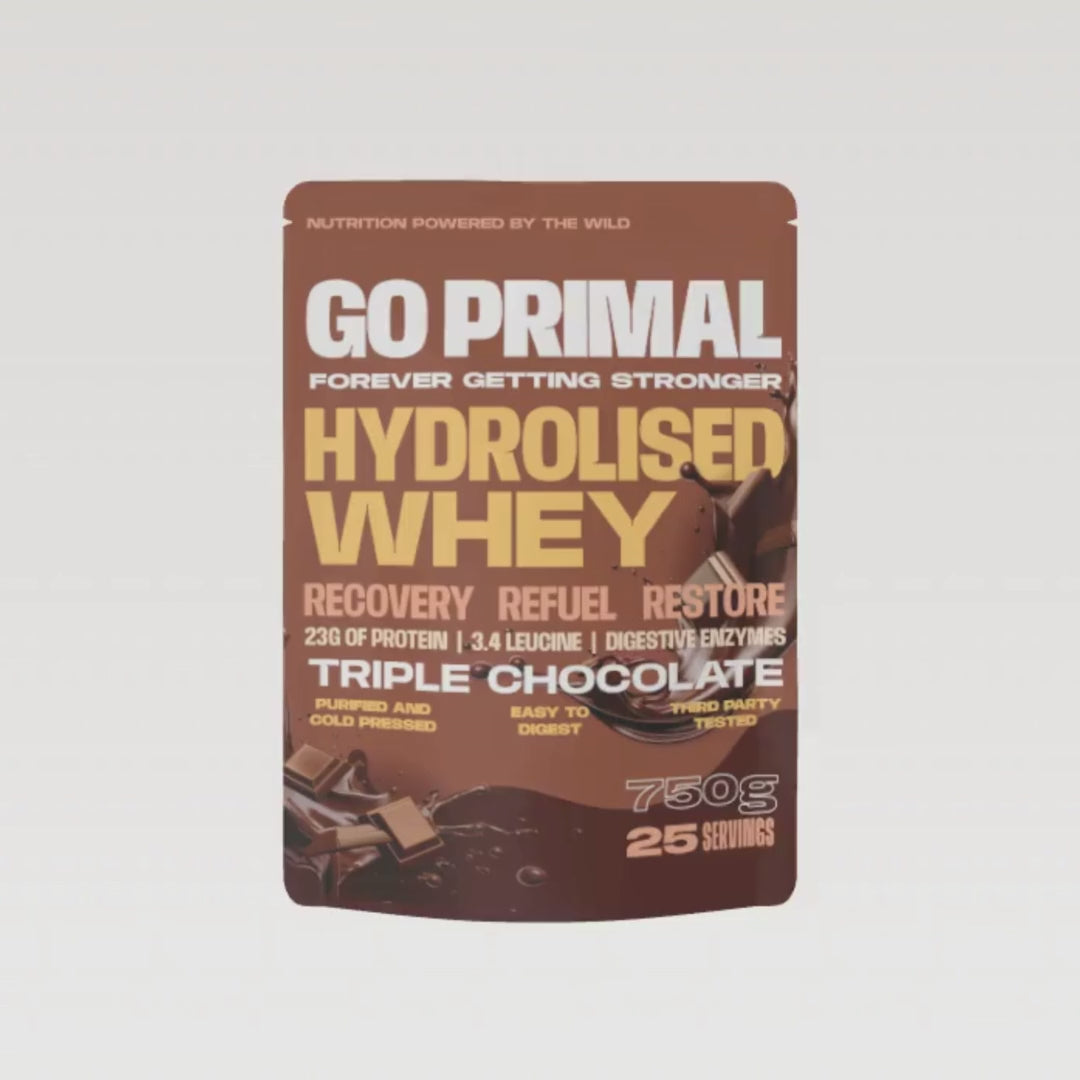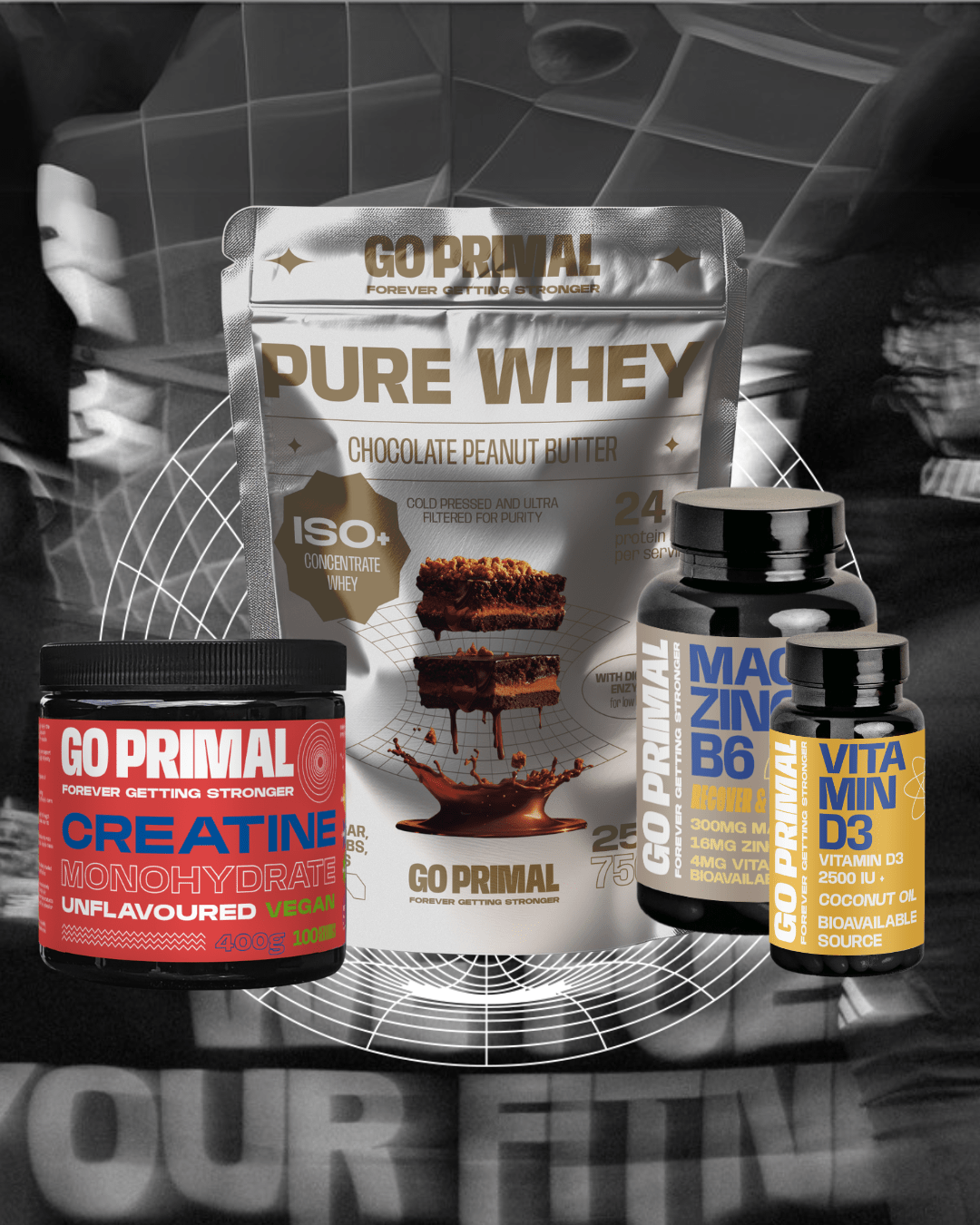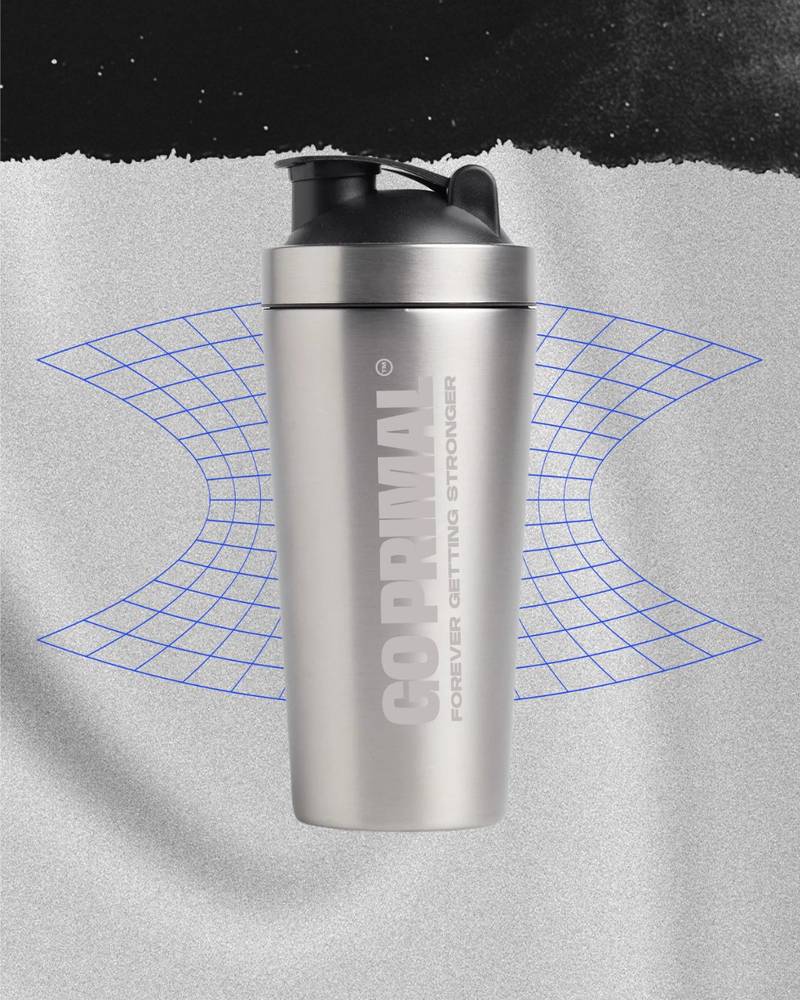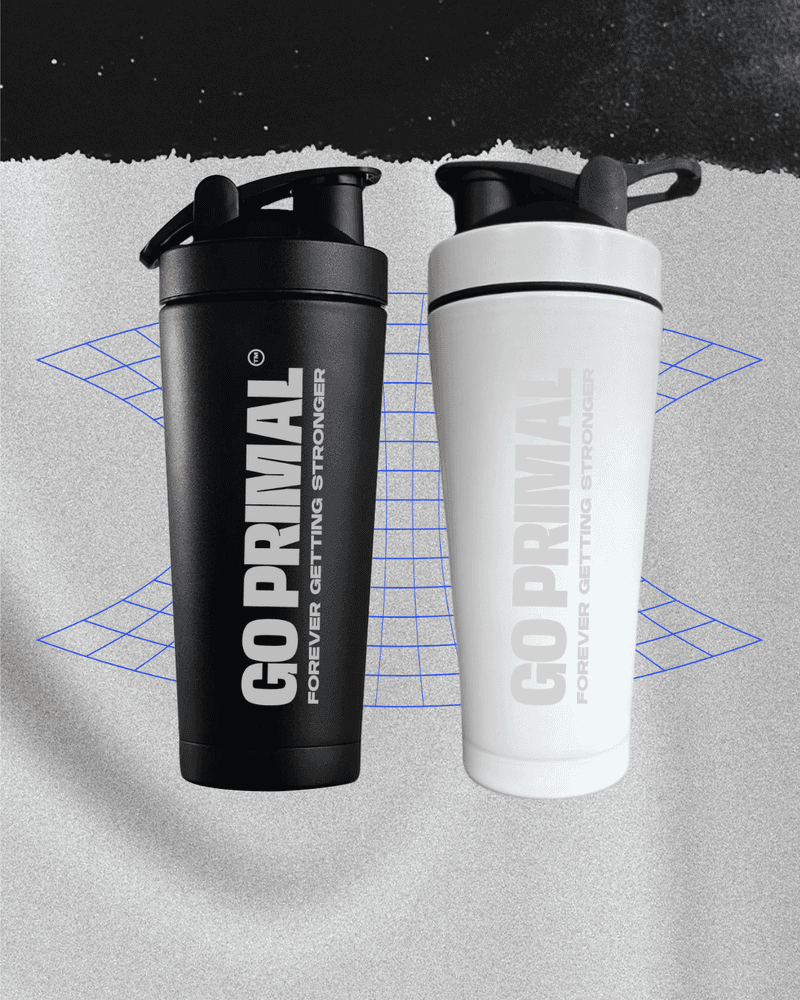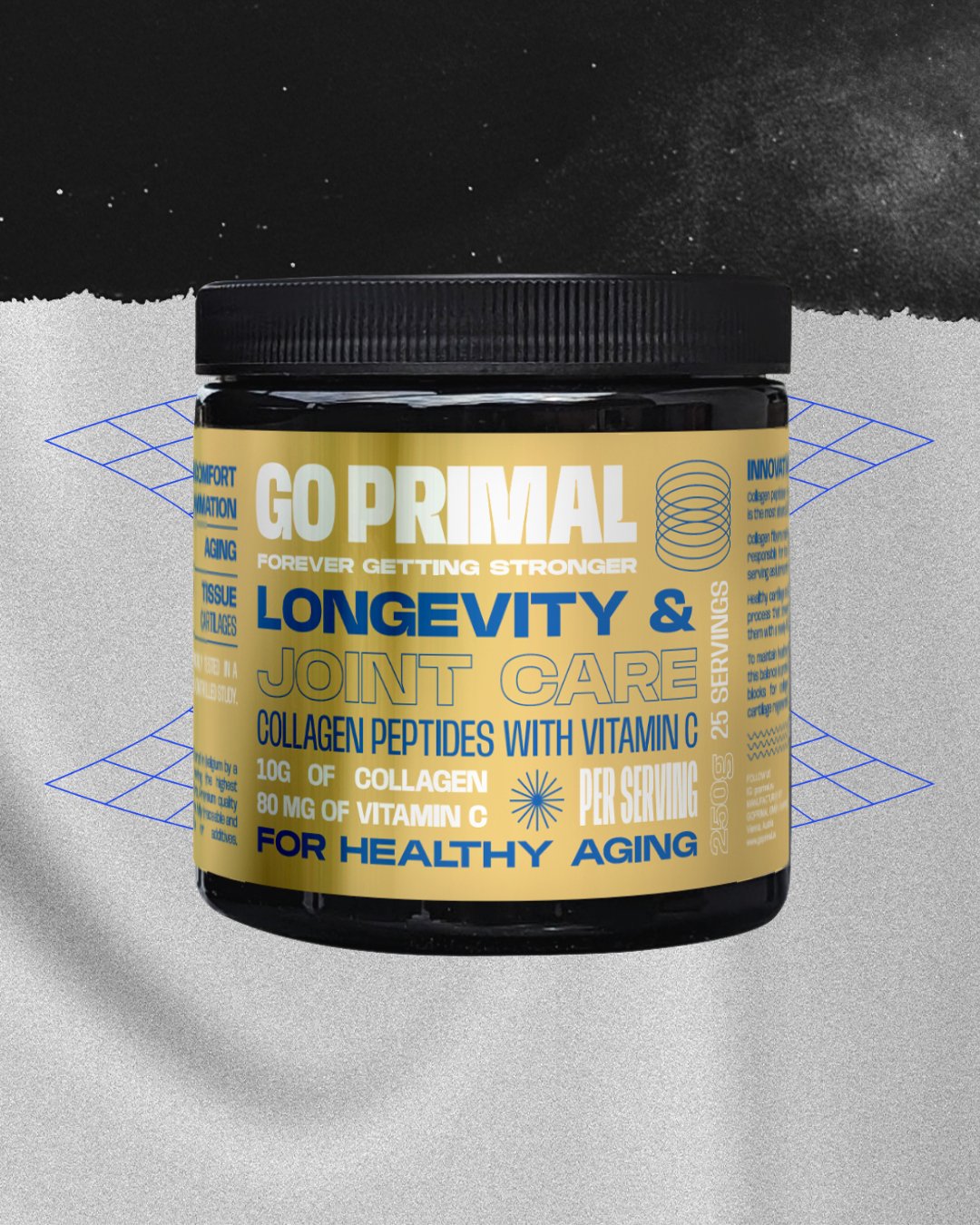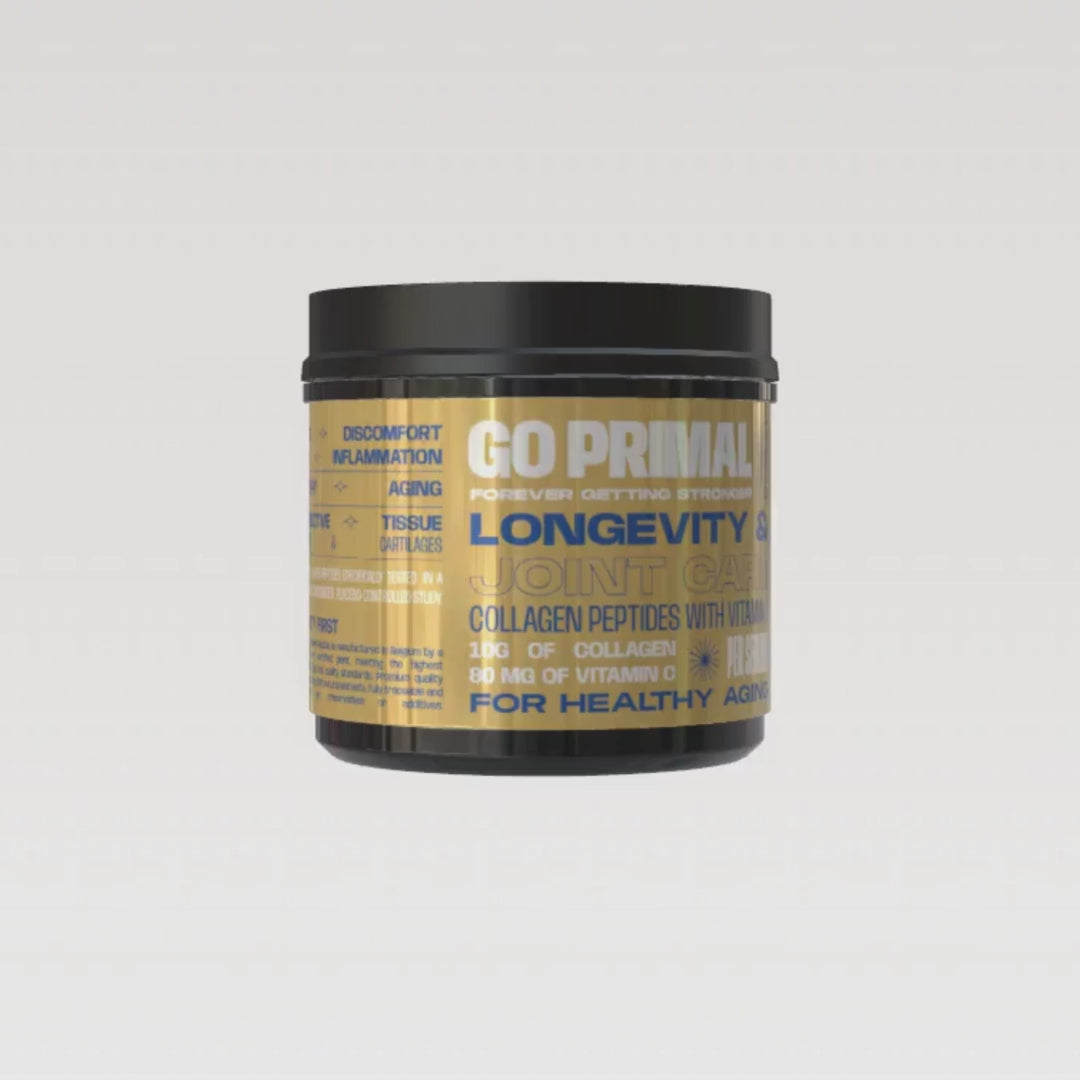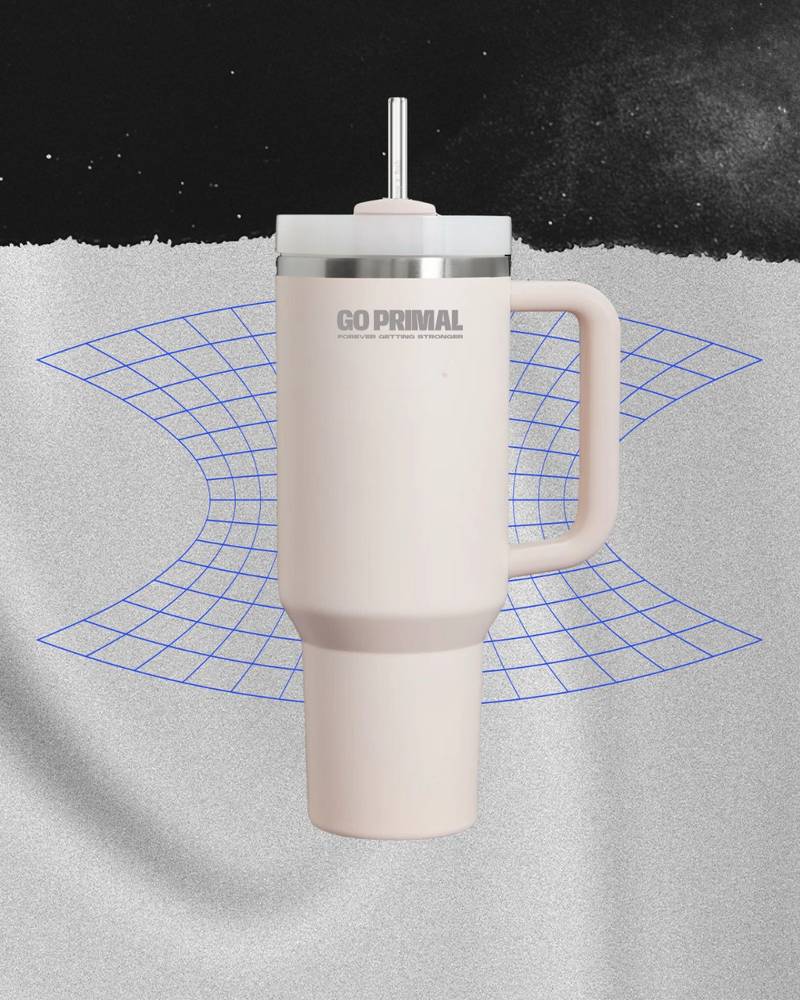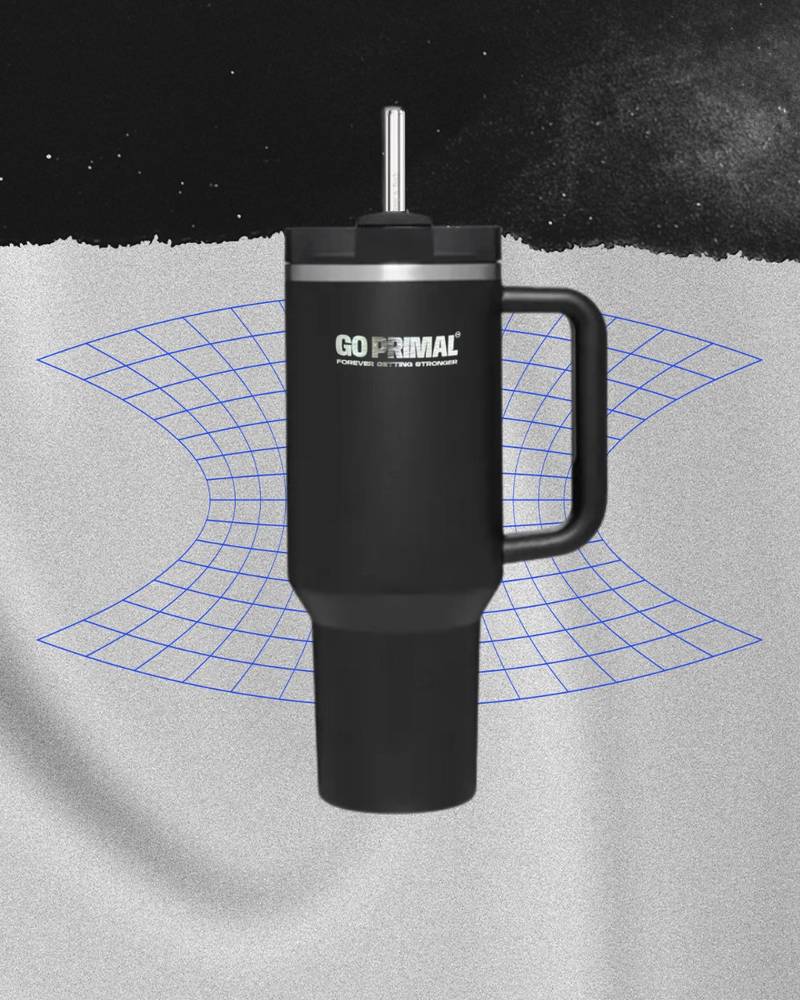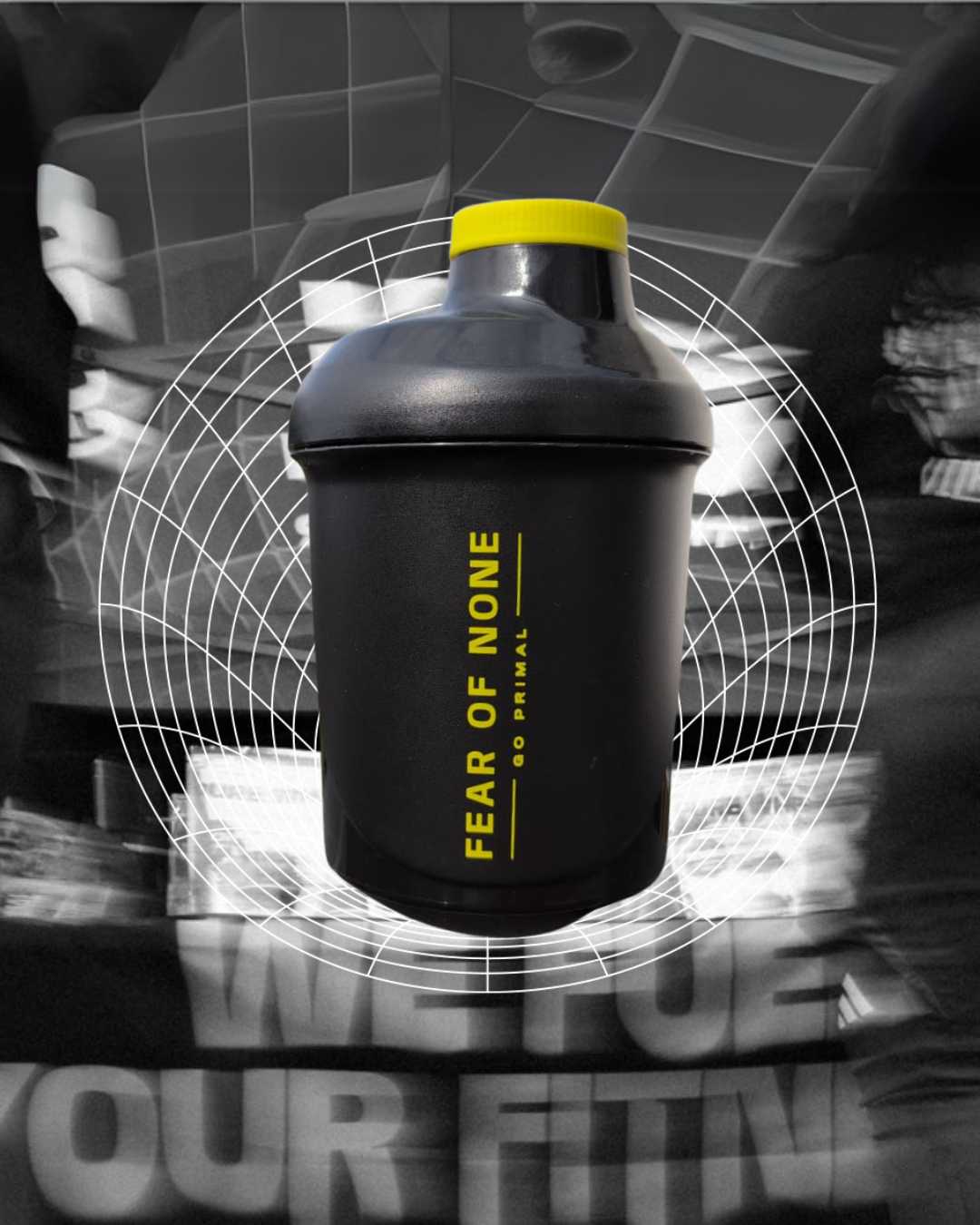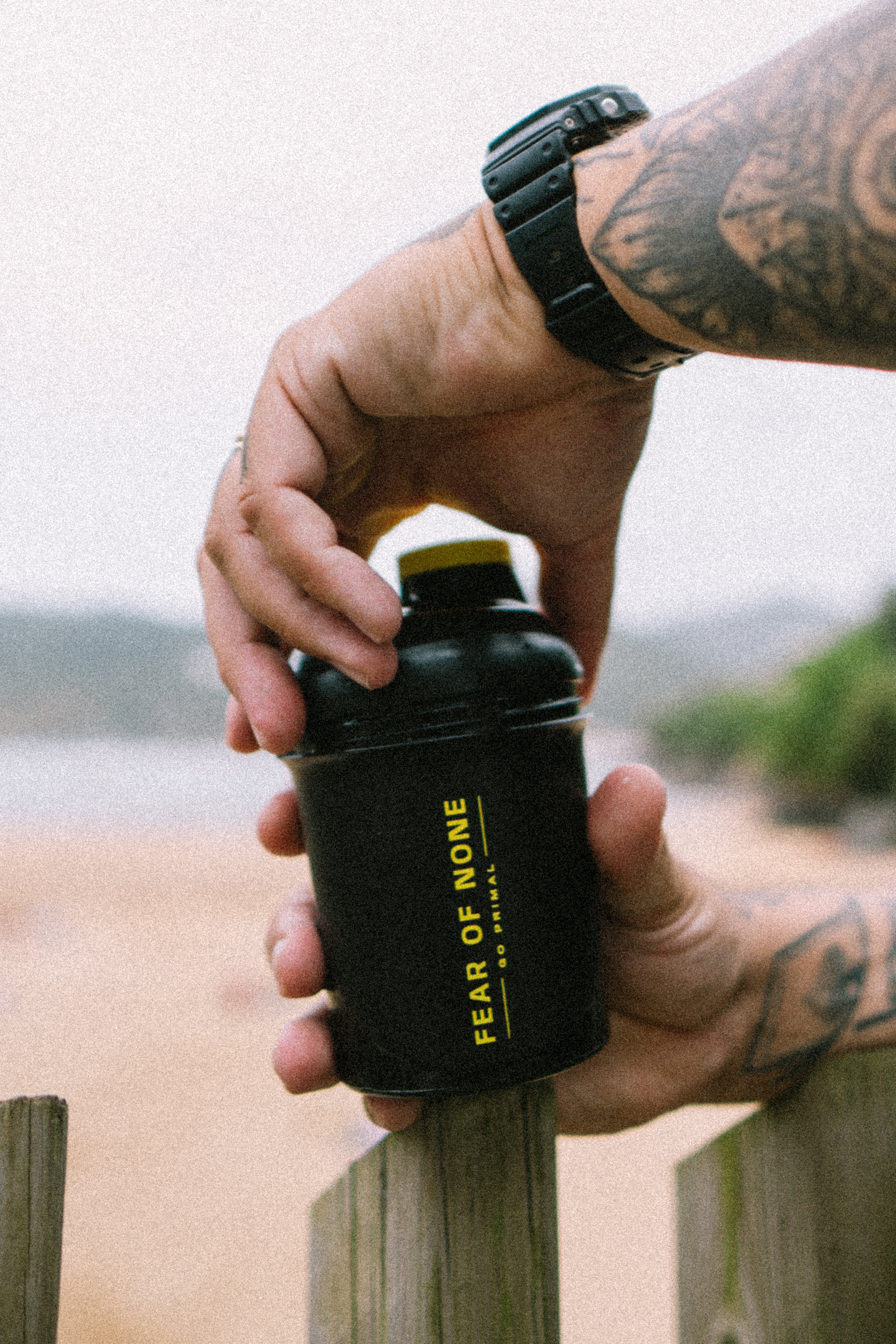Filters
Pure Whey Protein · 70% ISO + 30% Concentrate
Plant Warrior: Vegan Protein with Superfoods
Hydrolyzed Grass Fed Whey Protein
Longevity & Joints - Collagen Peptides w/ Vit.C
GO PRIMAL QUENCHER H20 TUMBLER. 1.18L / 40oz. Stainless Steel Shaker
The Summer Hydra Force Pack
💪 Protein Supplements FAQ
GoPrimal protein powders feature premium European-sourced ingredients with 95%+ bioavailability, complete amino acid profiles, and third-party tested purity. Our whey isolate contains 28g protein per serving with minimal carbs and fats, while our plant proteins deliver 25g complete protein from organic pea, hemp, and rice sources.
Our **Whey Protein Isolate** is optimal for muscle building with 28g fast-absorbing protein and 3.2g leucine per serving. For plant-based users, our **Vegan Performance Blend** provides 25g complete protein with all essential amino acids. Both formulas support muscle protein synthesis and accelerate recovery when taken within 30 minutes post-workout.
For muscle building, consume 1.6-2.2g protein per kg of body weight daily. Most athletes benefit from 1-2 servings of GoPrimal protein powder (25-56g protein) plus whole food sources. Take one serving post-workout and another between meals or before bed for maximum muscle protein synthesis.
Yes, all GoPrimal proteins undergo rigorous third-party testing for purity, heavy metals, and banned substances. We're **Informed Sport certified**, ensuring safety for competitive athletes. Every batch is tested for microbiological contamination and meets EU pharmaceutical-grade manufacturing standards.
GoPrimal **Whey Isolate** contains 90%+ protein with less than 1g lactose and minimal fats/carbs, making it ideal for cutting phases and lactose-sensitive individuals. Our **Whey Concentrate** provides 80% protein with natural immunoglobulins and growth factors, perfect for bulking and overall health support.
Absolutely. GoPrimal proteins support weight loss by increasing satiety, preserving lean muscle during caloric deficits, and boosting metabolism through thermic effect. Our Whey Isolate contains only **110 calories per serving**, while providing 28g high-quality protein to maintain muscle mass during fat loss.

